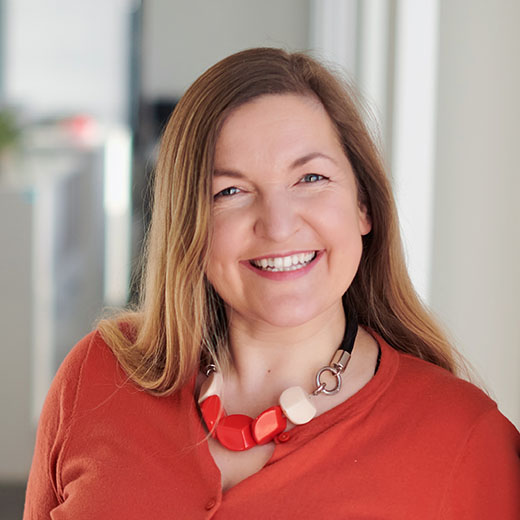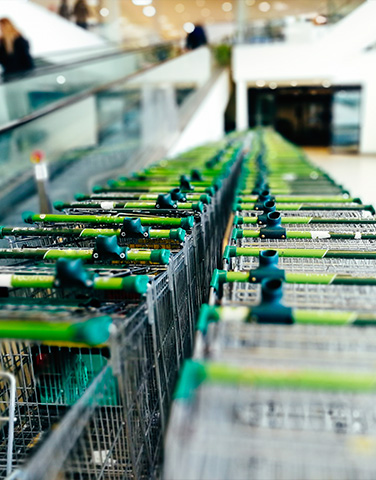
What do B Corp and International Women’s Day have in common? Inspiring inclusion as a purpose-driven law firm.
When Cripps certified as a B Corporation in January 2024 two significant changes happened. The equity partners amended the firm’s constitutional documents to legally commit the business to making a ‘positive impact on society and the environment’. And the B Corp Agreement was signed. This requires us to report transparently and make a ‘Declaration of Interdependence’. In other words, we understand that we are ‘dependent upon another and responsible for each other and future generations’.
So what does this have to do with International Women’s Day? For starters, B Corp Month and International Women’s Day both fall in March. Above that they both promote inclusion as a force for good in the world.
Women make up 50% of the global population yet across business, politics and society, women are largely underrepresented. In the UK, 20% of UK companies are female-led and research released from The Gender Index in 2023 shows that accessing finance remains a challenge for female founders. This is just one example close to home.
As a purpose-driven law firm, Cripps is exploring how we improve our own organisation and use our legal influence to shift the dial.
Putting women at the heart of what we do
Cripps is a growing law firm of 500 people, 75% of whom identify as women. This gives us an opportunity and an obligation to make a difference to the lives of women in our business. We start with data. Every two years, the Solicitors Regulation Authority (SRA) requires us to submit diversity data. Read our report from 2023.
The B Corp Business Impact Assessment (BIA) enables us to dig further into areas of concern and set improvement goals. For example, over 50% of our managers and 40% of our board directors identify as women. But our firm is 70% owned by men. This under-representation at equity partner level is common across the legal sector but is, by no means, a norm we accept. To change it, we are raising the voice of women in our business.
For International Women’s Day this year, we broadcast a panel discussion across our three office locations. Three of our partners were interviewed by a legal apprentice to share their stories and reflections of reaching leadership as women in law. Topics included the emotional and physical load women still take on as primary carers in families and the sense of disconnection women can feel returning to work after maternity leave.
Our shared parental leave of 52 weeks acknowledges that everyone has a right and responsibility to enjoy a family life. By encouraging both women and men into caregiving roles as the norm, we will achieve greater gender parity. We are also planning to increase our support for women returners this year so they feel confident in fulfilling their career ambitions.
The voice of women in our business must continue to be connected to decision-making for us to succeed in creating an inclusive and high-achieving workplace culture
How net zero gains can improve the prospects of women globally
What has inclusion got to do with climate? The truth is, globally, women and girls are disproportionately affected by the climate crisis. Women make up 70% of the world’s poor and are more dependent than men on natural resources.
After climate disaster and conflict events, women face greater health risks from a lack of access to water and sanitation. As resources become scarce, they take on increased domestic and care work. This impacts girls’ education and women’s recovery creating a vicious cycle of vulnerability.
Research undertaken during the height of the Covid-19 pandemic found that women leaders were better at motivating employees, taking the initiative, developing others, and communicating powerfully. These are all critical skills yet women’s’ voices are not heard in climate policy and leadership. Since 1995, only five women have been appointed as COP Presidents. SHE Changes Climate is creating ‘a global movement advocating for inclusion at all levels of decision-making to address the climate crisis and shape a sustainable future for all’.
While our climate actions are local, our vision is global. Our environmental initiatives are led by our partner, Joanna Ford who says: “We share this planet and we recognise the interdependence of our lives. This is not about ‘doing less harm’ with net zero targets, but planning for material gains that add to the creation a healthier planet for all. We want to support nature recovery and team up with environmental partners such as The Wildlife Trusts and Friends of the Earth to learn where we, as a business, can have the most effective and profound positive impact”.
Knowing our suppliers and making conscious buying decisions to inspire inclusion
One the biggest areas of influence we can have is through our purchasing power. This is a commercial reality that we can use as a force for good. Our suppliers are critical to our firm’s success. They represent companies from household brands to sole traders. We tend to know their size and location but not much about their ownership or the diversity of their employee populations.
Part of our B Corp improvement plan is to get to know our suppliers better. We are setting objectives for supplier diversity so we measure the percentage of our purchases from companies that are majority-owned by women or individuals from other underrepresented groups to create a more inclusive and just economy.
As IWD say ‘When we inspire others to understand and value women’s inclusion, we forge a better world. And when women themselves are inspired to be included, there’s a sense of belonging, relevance, and empowerment.”
This International Women’s Day and B Corp month, we are proud to be thinking and acting long-term to inspire inclusion in our workplace. It takes time but we know change will come and that our actions will have a ripple effect to make a positive difference.
















